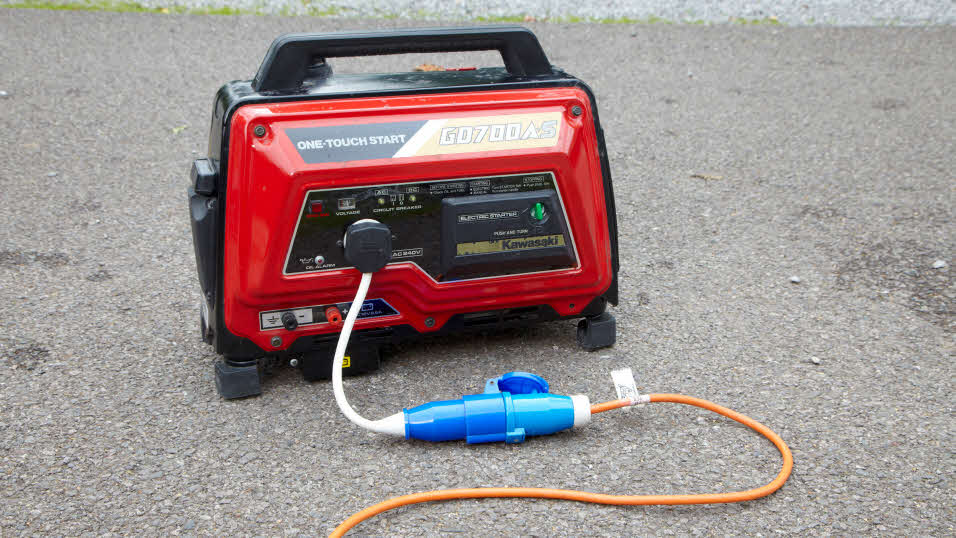Information
On Club sites, generators should not be used between 6pm and 9am.
If medical needs dictate more frequent use of a generator, inform the warden before pitching or ideally use an electric hook-up instead.
 Portable generators can provide a useful back-up power supply for caravanning ‘off-grid’, but make sure that the model you choose will be suitable for your requirements.
Portable generators can provide a useful back-up power supply for caravanning ‘off-grid’, but make sure that the model you choose will be suitable for your requirements.
Portable generators are a means of providing an alternative when mains hook-ups are not available – but it is important to use them with due consideration to fellow campers.
Generators are available in a wide range of outputs with those suitable for caravanning generally rated in the 300 to 900 watt range. Not all generators are suitable for use with caravans and care must be taken to select a product, which is both safe and effective.
First calculate the combined power of the appliances you intend to use at any one time:
| Appliance | Watts |
|---|---|
| Portable colour TV | 60 |
| Two 230V lamps (60W bulbs) | 120 |
| Fridge | 125 |
| Slow Cooker | 200 |
| TOTAL | 505 |
These are examples; check the maximum wattage of your own appliances. Remember that start-up current may be greater than the running current.
In this example, a generator that will supply at least 505 watts would be needed (if in doubt choose the next size up). Some appliances are not suitable for use with most portable generators, such as microwave ovens, as generally they require an input of at least 1000 watts.
Most generators are quoted at 50Hz, which is a UK standard (and essential for equipment like TVs). Appliance manufacturers are likely to refuse warranty claims if the wrong frequency is selected.
Most ‘leisure type’ generators use unleaded petrol (but check the user instructions). The fuel must be carried in approved containers carrying the British Standard mark. Do not use old oil cans or similar containers, as garages will refuse to refill non-standard cans. Like any engine, a generator will also consume oil, so levels need checking regularly.
Along with emissions and safety, this is one of the key considerations when using a generator – especially if there are other campers or caravanners in the vicinity.
EEC regulations implemented in 1989 require portable generators (under 2kVA) to have a maximum noise level of 100 LWA (a decibel-type unit to EC standards), which is measured at four metres.
Decibel levels are usually taken at seven metres and will therefore be much lower, but manufacturers differ. Remember, even relatively quiet generators can have a high annoyance level to others nearby.
It is strongly recommended that you ask to hear a generator running before you buy. If you think it sounds noisy, then so will your neighbours on a site.
We are not aware of any commercially available way of further silencing a portable generator that would not adversely affect its performance or cooling, but careful siting can reduce the nuisance.
On Club sites, generators should not be used between 6pm and 9am.
If medical needs dictate more frequent use of a generator, inform the warden before pitching or ideally use an electric hook-up instead.
Don't place the generator in the awning for wet weather use because exhaust fumes are produced. Adequate ventilation is vital.
Don't place the generator under the caravan, as fumes could be drawn into the caravan via an air vent.